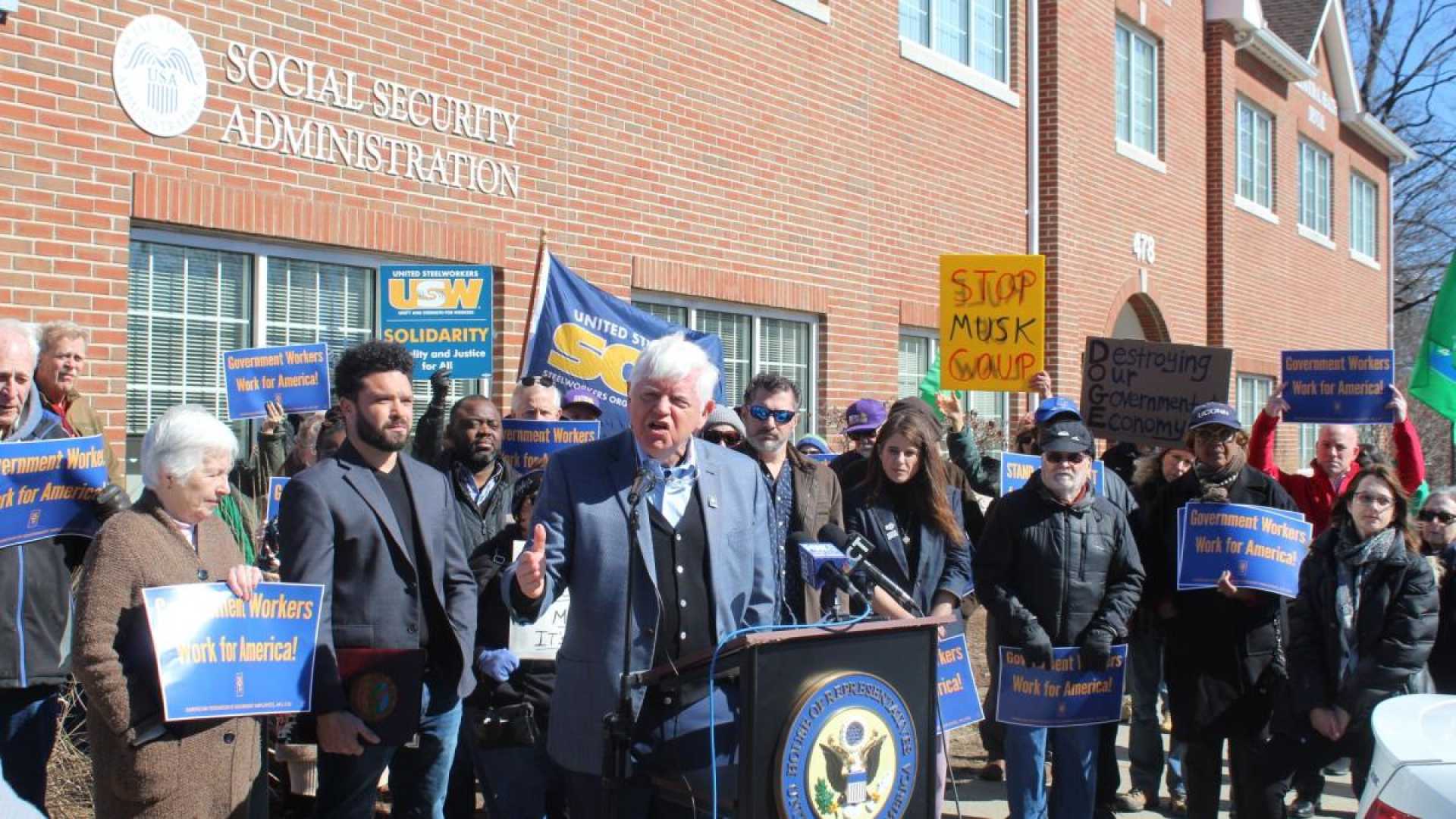Politics
Claims of Noncitizen Voting Spark Controversy at Social Security Administration

Washington, D.C. — An employee of Elon Musk‘s Department of Government Efficiency (DOGE) has ignited a debate over noncitizen voting by making unfounded claims about illegal immigrants receiving Social Security numbers. Antonio Gracias, working within the Social Security Administration (SSA), spoke out on April 2, alleging that “5-plus million” noncitizens received Social Security numbers through an automatic system, enabling them to access benefits and potentially vote.
During a rally in Green Bay, Wisconsin, Gracias claimed to have discovered thousands of noncitizens on voter rolls in several states, suggesting that many had participated in elections. His assertions align with broader narratives pushed by Musk and some Republican lawmakers advocating for stricter voting laws, mirroring claims once made by former President Donald Trump during the 2024 campaign.
Experts have criticized Gracias’s characterization of the SSA’s enumeration-beyond-entry program, which simplifies Social Security card issuance for certain immigrant categories. Voting registration professionals express skepticism regarding the accuracy of Gracias’s claims, noting that existing evidence of noncitizen voting remains scarce.
Using data from the SSA to bolster allegations against noncitizens raises significant legal and ethical questions, experts warn. The potential misuse of personal data could violate privacy laws, especially considering that many noncitizens utilizing the SSA’s services are in the process of naturalization and may later appear on voter rolls as legal citizens.
Gracias, a venture capitalist who assists Musk’s efforts in government efficiency, is one of ten DOGE staffers embedded in the SSA. His role primarily involves analyzing death data and addressing improper payments but does not extend to scrutinizing how noncitizens acquire Social Security numbers. Court records indicate that neither Gracias nor other DOGE employees were granted access to sensitive databases or personal information, raising concerns about the foundation of his claims.
In a recent interview, Gracias maintained that his team identified illegal voters within four states deemed “friendly,” asserting that they referred cases for federal prosecution. However, many experts caution against the reliability of linking voter registration processes with Social Security data, citing a high possibility for errors in such cross-referencing.
Charles Stewart, director of MIT‘s Election Data and Science Lab, emphasized the high risks of inaccuracy when states conduct assessments based merely on names and birthdays, which are often included in public voter rolls. Similarly, David Bier from the Cato Institute expressed uncertainty about the efficacy of DOGE’s data connections, suggesting the investigation may reflect broader inconsistencies within government data aggregation efforts.
Questions surrounding DOGE’s methodologies intensified following a March 20 ruling by a federal judge prohibiting DOGE employees from accessing SSA data until further notice, highlighting a need for greater scrutiny of information access protocols within government agencies.
As the controversy unfolds, lawmakers continue to engage with Gracias’s assertions, evidenced by recent comments from Florida Representative Aaron Bean during a House debate over the SAVE Act, citing noncitizen voting as a pressing issue. The ongoing dialogue could influence future legislative actions concerning voter integrity in the United States.












